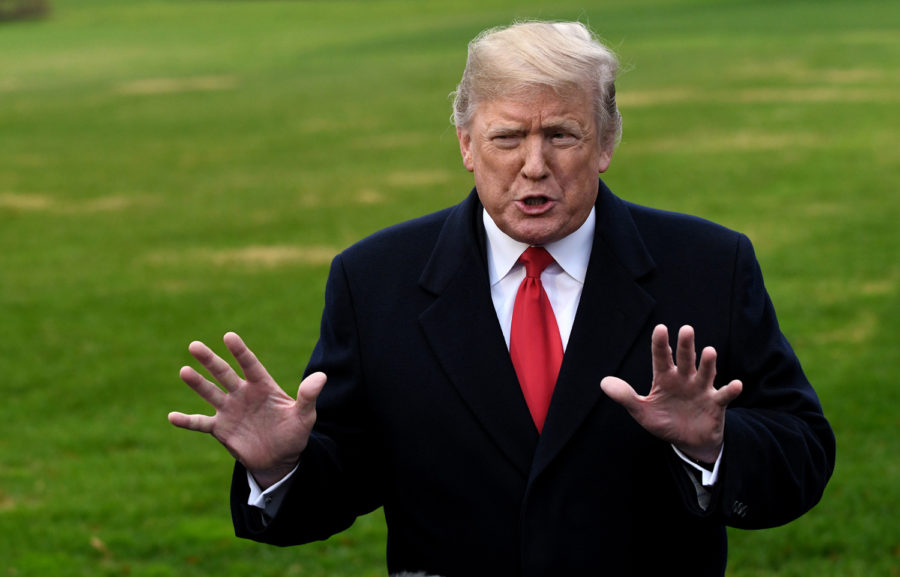Editorial | Trump calls for state TV network: a dictator move
Olivier Douliery/Abaca Press/TNS
President Donald Trump answers questions from the media before departing the White House on Monday.
November 28, 2018
Many scholars, journalists and politicians have lambasted President Donald Trump for his authoritarian tendencies — but Tuesday, he truly took a page right out of the dictator handbook. The president suggested via Twitter that the United States should broadcast state-run, state-sponsored TV domestically and abroad to rival independent media outlets.
“Throughout the world, CNN has a powerful voice portraying the United States in an unfair and false way,” Trump tweeted Tuesday. “Something has to be done, including the possibility of the United States starting our own Worldwide Network to show the World the way we really are, GREAT!”
Such a project would not only be pure political propaganda — fulfilling Trump’s dream of broadcasting his self-proclaimed greatness to the world — it would also dangerously open the door for Trump to crack down on media outlets that report unsavory news about the White House, just like in modern-day autocratic regimes.
In China for example, the government keeps all media under tight regulations, banning negative press on the government to promote a rosy image of the country’s chairman. The government utilizes advanced screening systems and firewalls, and often jails rebellious journalists who don’t fall in line with the nation’s strict code.
If Trump’s wishes were to ever come to fruition, policies like the ones in China would certainly be conceivable — even in the United States which explicitly protects the media’s rights in the Constitution.
Trump’s tweet is certainly appalling, but it’s not surprising coming from a president who has called major media outlets like CNN, The New York Times and The Washington Post “fake news” and insisted journalists are “the enemy of the people.” His statements have dangerous implications for freedom of the press in our country, especially since the U.S. government prides itself on promoting objective news.
The United States already has two major news outlets that receive some amount of government funding — Voice of America, an international broadcast containing American news, and NPR, a domestic radio station that distributes news and cultural programming. But the biggest difference between Trump’s proposed network, VOA and NPR is those stations’ journalists must adhere to a strict, objective code.
“VOA is accurate and objective in all of its reporting, programming, online and social media content,” VOA’s code reads. “[We] do not accept treatment or assistance from U.S. government officials or agencies.”
A Trump TV outlet would not only go against the objective, unbiased news outlets that Congress funds, it would also run diametrically opposed to this country’s most fundamental constitutional freedoms.
But even if Trump’s wishes don’t come to fruition — which they likely won’t — his tweet still reveals the absurd disconnect between the head of our executive branch and the rule of law. A president should try his utmost to protect Americans’ freedoms, but Trump, for the umpteenth time, has shown he’s only interested in protecting his image — and Americans could pay the price.








